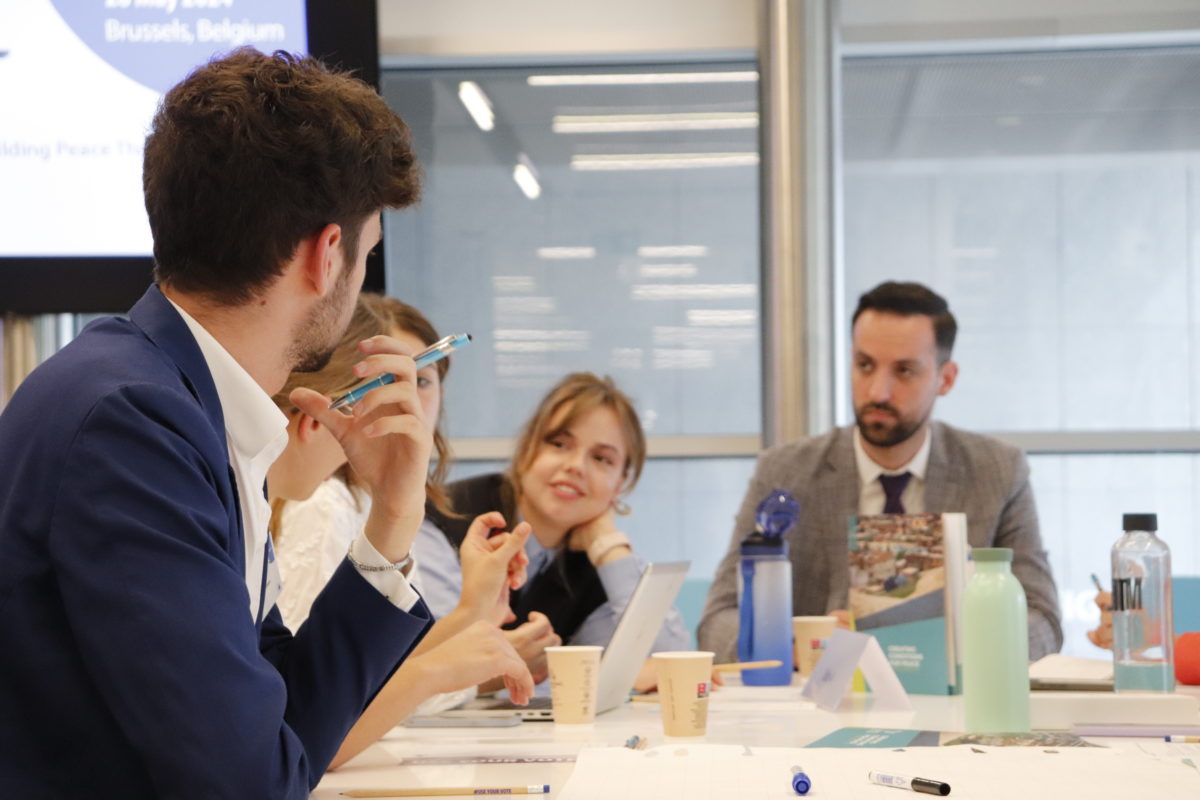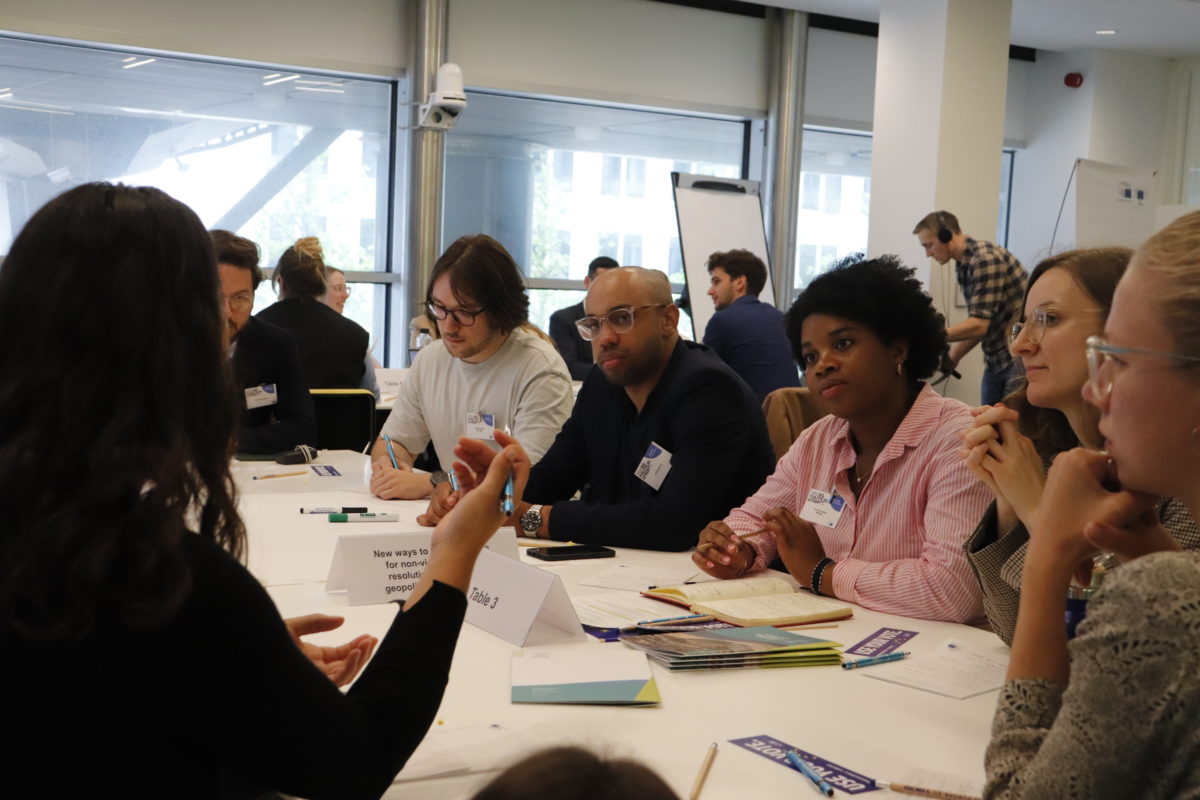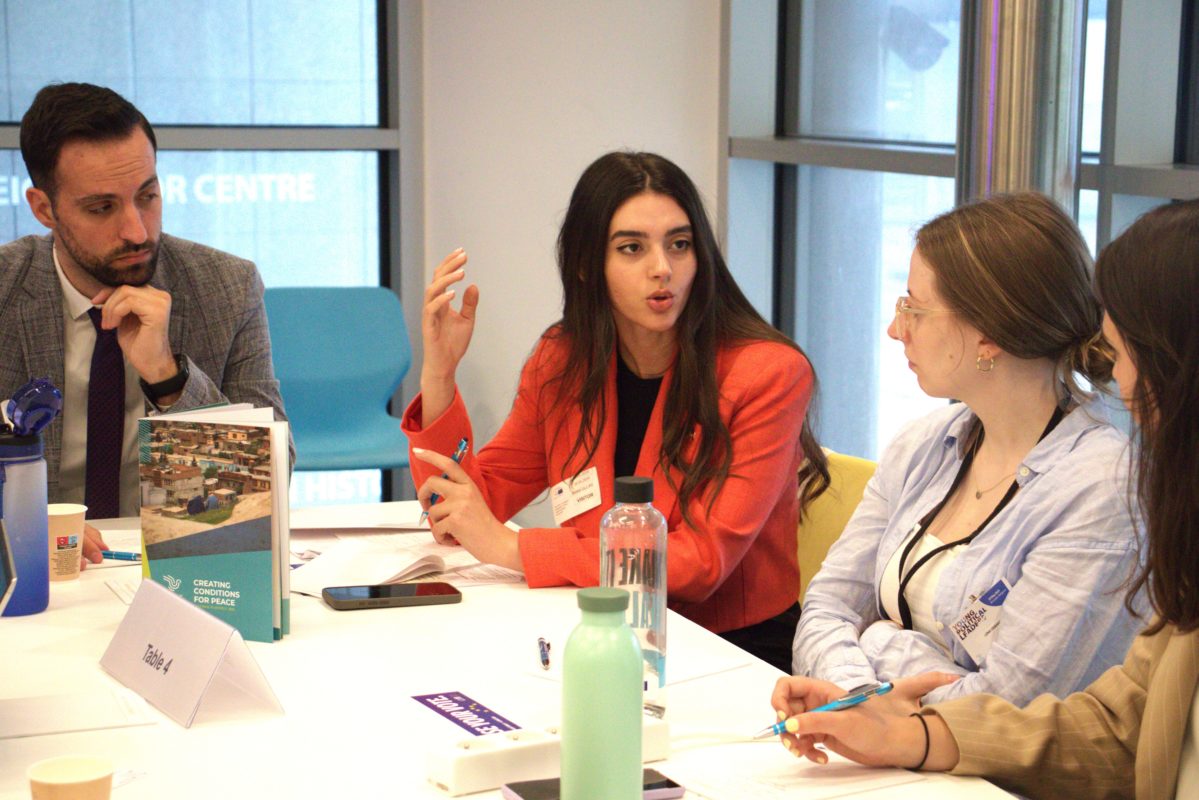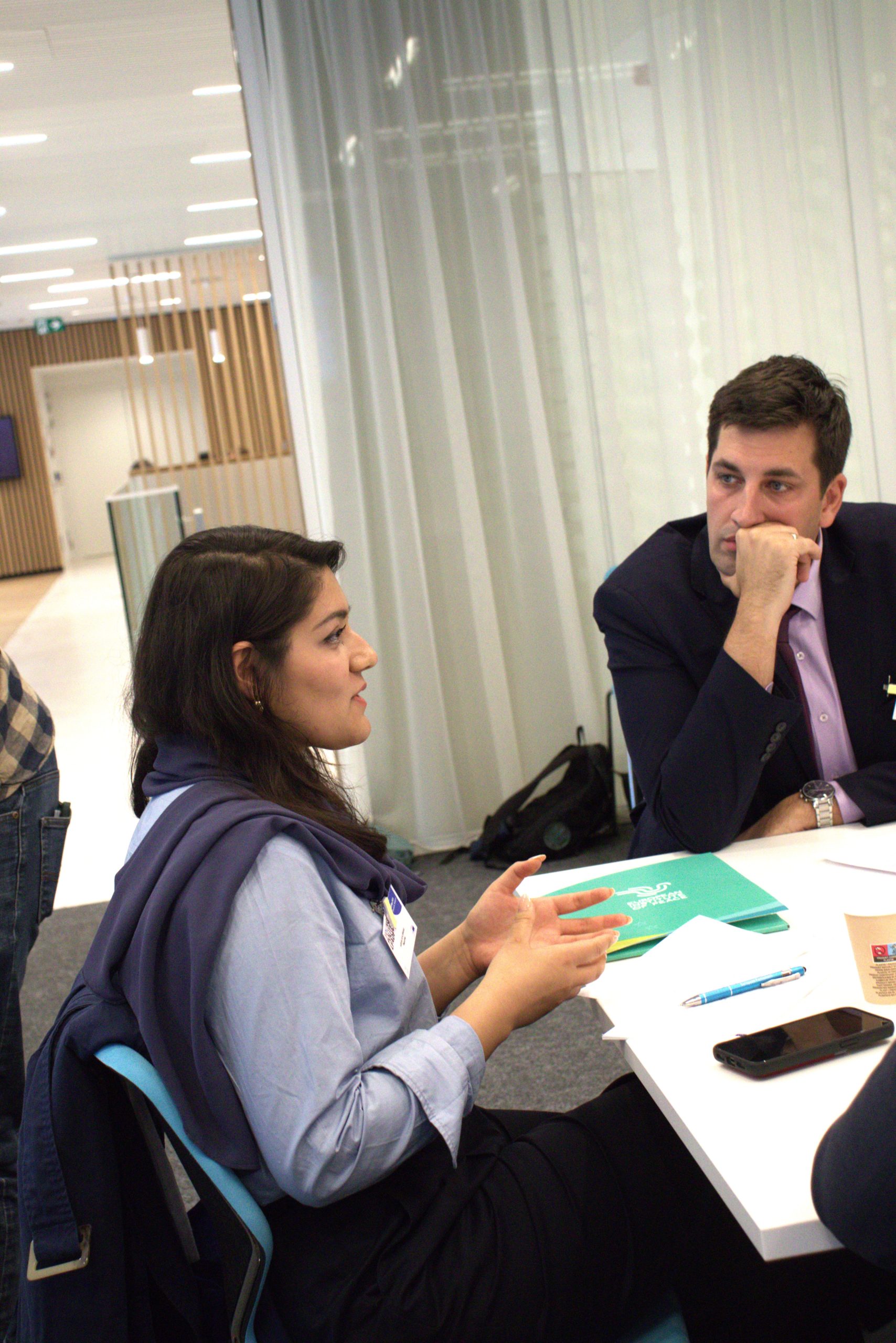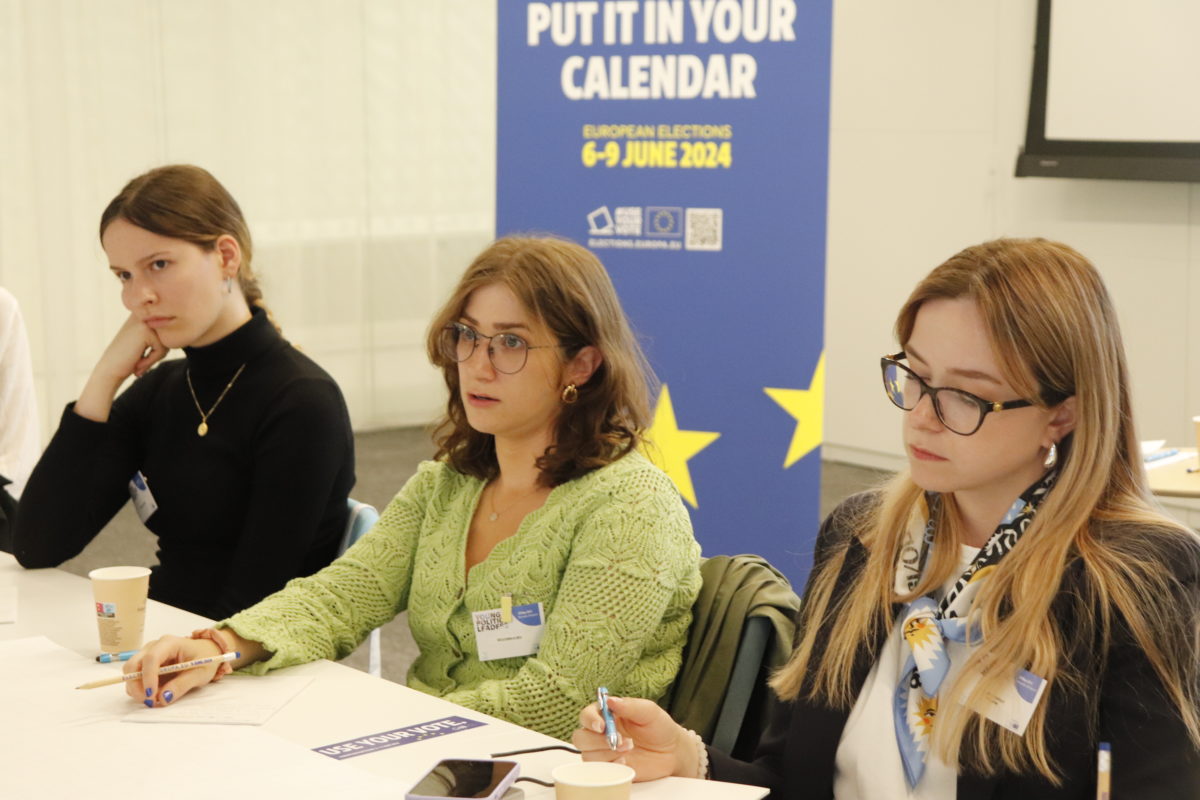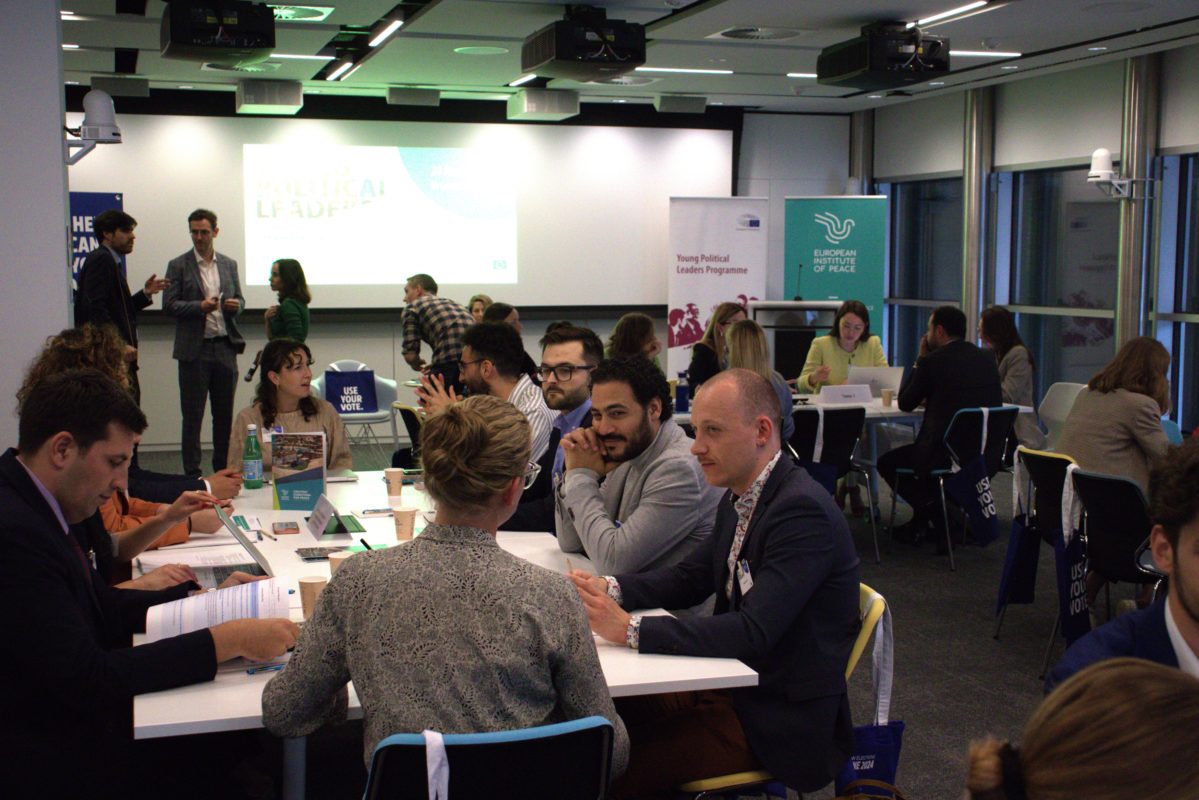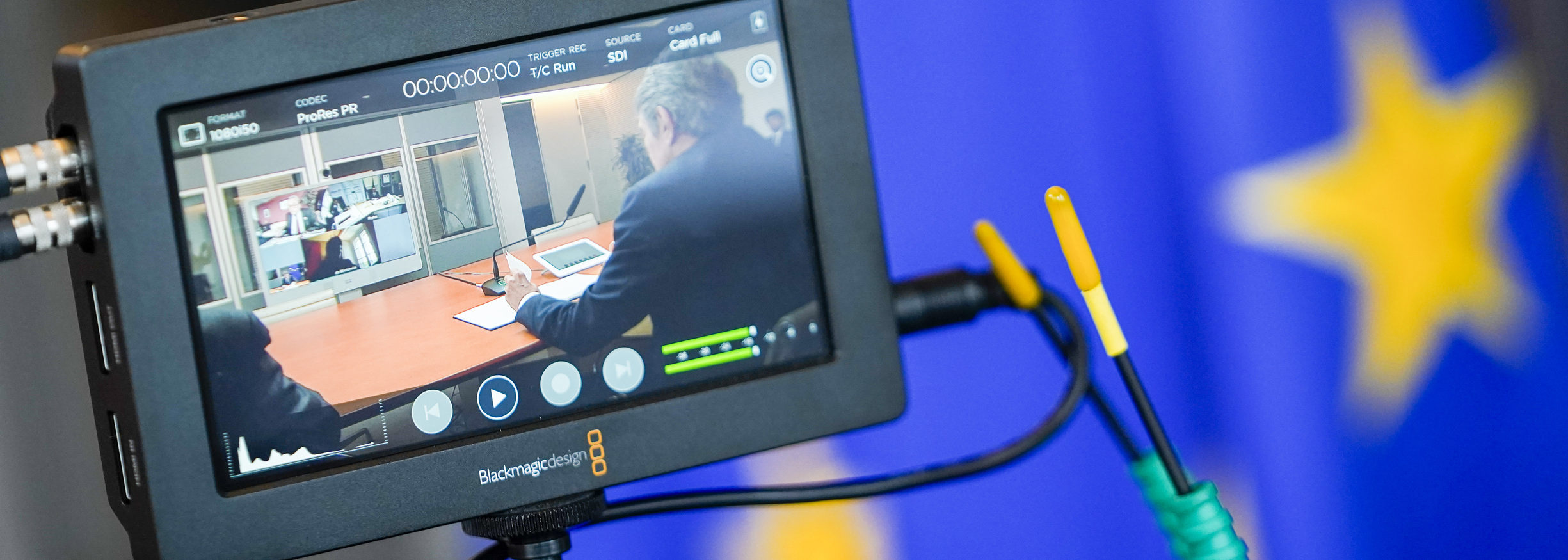Connecting Generations: Building Peace Through Dialogue
04/06/2024

The European Institute of Peace partnered with the European Parliament to host a World Café Workshop for young political leaders and activists on 28 May as part of a series of events to mark the Institute’s 10-year anniversary. Over 40 young political leaders and activists from across the globe came together at the European Parliament’s Infohub to take stock of the current state of peacemaking and look at the decade ahead.
The workshop was attended by individuals from the Parliament’s Young Political Leaders Alumni network as well as individuals from various other networks such as Forbes, Friends of Europe, EIP staff and other young leaders working in the fields of conflict resolution and peacemaking. Participants joined from the Western Balkans, Afghanistan, Iraq, Ukraine, the United States, and all over Europe to share and contribute their perspectives and experiences to the events discussion.
Since the United Nations Security Council Resolution 2250 on Youth, Peace and Security in 2015, the role young people have in peacemaking efforts has gained recognition in both public and private policy spheres. However, implementation gaps still persist despite recent reports showing that women, youth and children are bearing the brunt of conflict. In the 900 negotiated peace agreements signed globally in the last couple of decades, the voices of young people have been largely absent, according to the Youth Inclusive Guide to Peace Mediation.
The workshop emphasised the need for intergenerational dialogue in peacemaking efforts and aimed to highlight inclusive and innovative approaches to non-violent conflict resolution. Participants shared their experiences and ways they have been affected by conflict and contributed to peacemaking efforts. The workshop served as a forum for dialogue and networking ahead of an intergenerational event on 29 May in which several young leaders participated.
The format of the workshop followed a World Café, where participants were divided into separate tables that focused on four individual questions pertaining to the following topics; To empower youth and bridging generational gaps in peace efforts; To find new more inclusive and localised paths to peaceful resolution of conflict; To make the case for non-violent conflict resolution in a changing geopolitical environment; To navigate the impact of emerging technologies in conflict resolution. Exploring these prompts, each group was tasked with developing recommendations aimed at policymakers and peace practitioners on how to connect generations and build peace through dialogue.
A working group comprised of participants assigned to the four topics listed above has been established to build on the findings of the discussions. Among the points that emerged, the group emphasised the value of creating space for intergenerational dialogue through innovative, formal and informal formats to meet and expand upon the pillars of the Youth, Peace and Security agenda. They also reiterated the importance of tackling stereotypes and policy myths.
